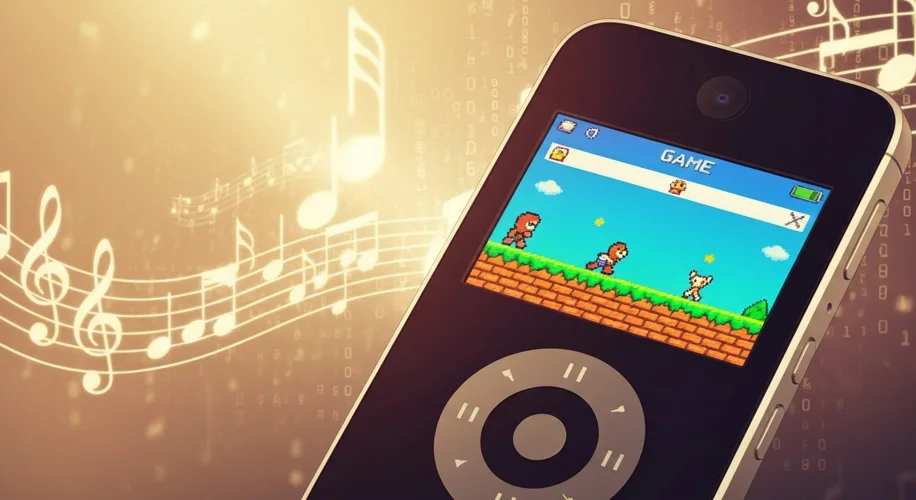Before the ubiquity of touchscreens and the endless scroll of social media, there was a device that revolutionized how we listened to music and, unexpectedly, how we played games: the iPod. More specifically, the iconic iPods equipped with the revolutionary click wheel. For a golden age, this tactile interface wasn’t just for navigating playlists; it was the gateway to a hidden world of surprisingly engaging games, a digital playground lost to the sands of time. Until now.
Today, September 9th, 2025, marks a significant moment in digital preservation. The culmination of years of dedicated effort has led to the successful recovery and restoration of all 54 lost click wheel iPod games. These weren’t blockbuster titles; they were bite-sized diversions, crafted to fit the unique constraints of the click wheel, offering a brief respite from the rhythm of music.
The Dawn of a New Interface, The Birth of New Pastimes
The click wheel, introduced with the third-generation iPod in 2001 and perfected in subsequent models like the iPod mini and the fifth-generation iPod (often called the “iPod Classic”), was a marvel of user interface design. Its circular motion and tactile feedback offered a more intuitive way to manage large music libraries. But Apple, ever the innovator, saw potential beyond mere music playback.
In 2005, with the launch of the fifth-generation iPod, Apple introduced a suite of five pre-installed games: “Brick” (a Breakout clone), “Vortex” (a 3D maze game), “Music Quiz” (a trivia game based on your music library), “Parachute,” and “Solitaire.” These weren’t just afterthoughts; they were carefully designed experiences that leveraged the click wheel’s unique capabilities. The satisfying click as you spun the wheel to dodge obstacles or select answers became an integral part of the gameplay.
A Universe in a Wheel: The Expanding Game Library
Over the next few years, Apple continued to develop and release new click wheel games, often as paid downloads through the iTunes Store. The library grew, offering a diverse range of genres. We saw puzzle games like “Crash” (a match-three puzzler) and “Maze” (a true test of click wheel dexterity). Action titles like “Beatmaster” and “Stealth” challenged players with timing and precision. Even strategy games found a home, with titles like “Kubrick” offering a deceptively simple yet addictive experience.

The ingenuity of these games lay in their adaptation to the hardware. Developers had to be creative, thinking about how a circular input could translate to movement, selection, and action. The tactile nature of the click wheel provided a physical connection that modern touchscreens often lack, creating a unique and almost tactile nostalgia for those who experienced it.
The Great Unraveling: When Games Faded Away
The golden age of iPod click wheel games was, however, finite. As Apple shifted its focus towards the iPhone and the App Store, the click wheel became a relic of the past. The iPod Touch offered a more traditional touchscreen gaming experience, and eventually, the beloved iPod Classic was discontinued in 2014. With it, the dedicated platform for these unique games largely disappeared.
Many of these games were tied to the older iPod operating system and were never officially ported to newer devices or made available through modern app stores. For years, they existed only on the devices that still housed them, vulnerable to obsolescence and data rot. The thought of losing this small but significant piece of digital history was a real concern for enthusiasts and collectors.
The Preservationists: A Digital Indiana Jones
The journey to recover all 54 games was a testament to the dedication of a passionate community of digital archivists and retro-computing enthusiasts. Working with old iPods, extracting firmware, and reverse-engineering the game code, these individuals painstakingly brought these lost digital artifacts back to life.
Their efforts involved understanding the intricacies of the iPod’s custom ARM processor and its proprietary software environment. It required deep dives into old forum posts, abandoned websites, and the faint digital echoes of a bygone era. Today, thanks to their tireless work, these games are not only preserved but also playable on emulators and, in some cases, even on modern devices.
Echoes of the Click Wheel: A Legacy of Innovation
The restoration of these 54 games is more than just a digital archaeological feat; it’s a reminder of a time when innovation took unexpected forms. The iPod click wheel games represent a unique intersection of hardware design and software creativity, a testament to the ingenuity that can flourish even within tight constraints.
They remind us that history isn’t just about grand battles and political upheavals; it’s also about the subtle shifts in technology that shape our daily lives and the forgotten digital pastimes that brought joy and a touch of playful rebellion to millions. The click wheel may be silent now, but the games it once spun are alive again, echoing through the digital halls of history.

